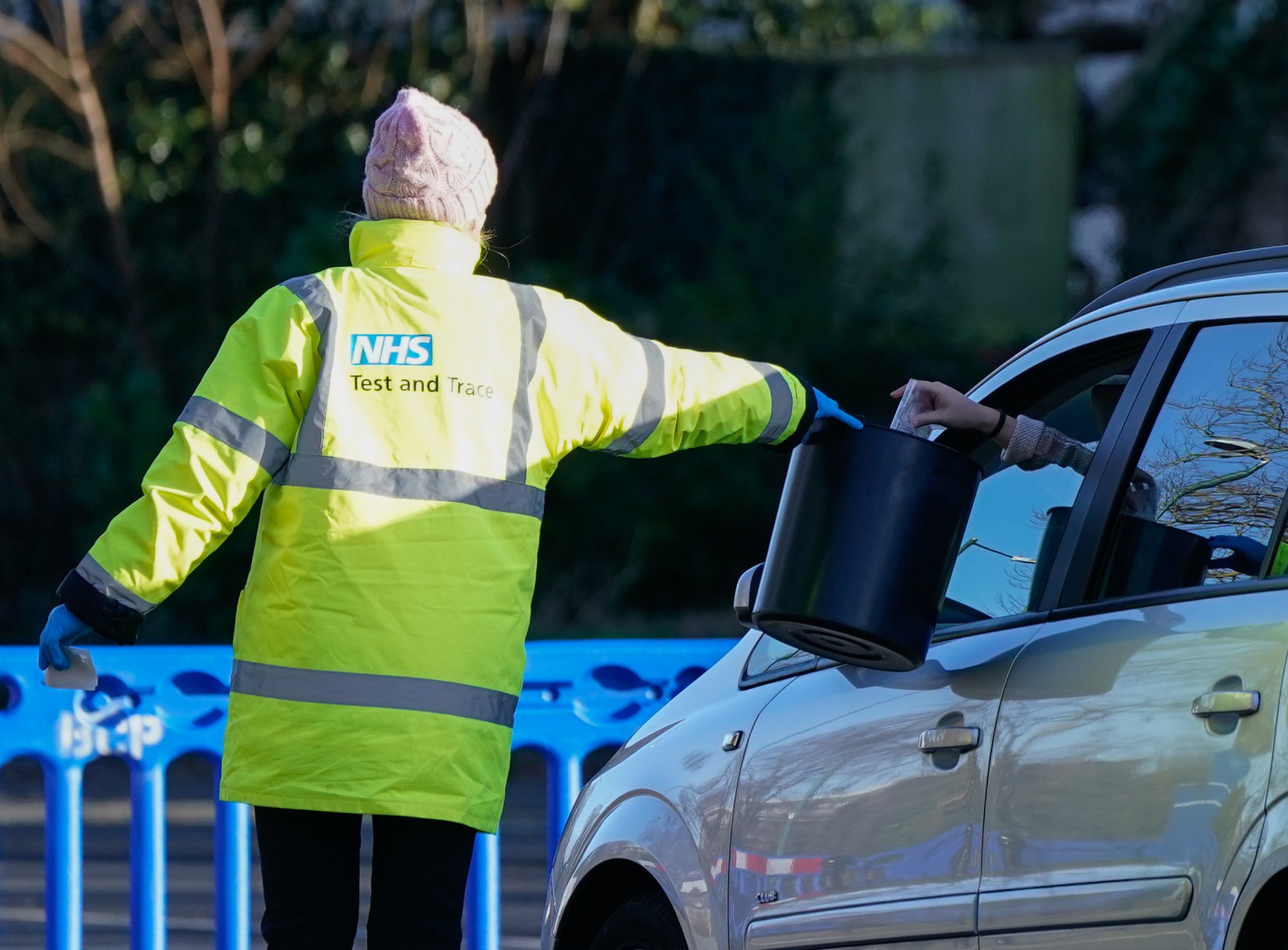Reducing PCR testing is a mistake that could send us back to square one
With new infections soaring, there is now a much greater chance of a new variant emerging in the UK – and we will look worryingly ill-prepared if it does, says Dan Poulter


Back at the end of 2020, as the nation braced for a winter wave of Covid-19, a new variant of the virus was taking hold in the southeast corner of England. Alpha, as it became known, turned out to be more of a tsunami than a wave, with mutations that made it far more transmissible than the original strain.
But thanks to NHS doctors and the UK’s pioneering genomic sequencing consortium, which allowed us to sequence positive PCR results, it was spotted quickly, and we were able to alert medical professionals across the globe to the new and more dangerous variant. Fast forward to November 2021, and similar quick action and effective testing from South African doctors raised warnings about the Omicron variant.
Omicron is now the dominant variant in the UK, but following a herculean vaccination programme and booster rollout, we are in a much stronger position, with fewer deaths and hospitalisations than in previous waves. While we are right to celebrate this accomplishment, it does not give us licence to abandon all caution or let our guard down. Unfortunately this seems to be the direction of travel.
This week, the government announced a temporary change to testing requirements, meaning that people who test positive on a lateral flow test without displaying any symptoms no longer need to go for a follow-up PCR test. The change was made in the face of mounting capacity issues and staff shortages from rising infections. Yet it is precisely because of these high numbers of infections that we should be doing the opposite.
The UK is currently experiencing around 200,000 new cases daily, with 1.2 million new cases in the last week and as many as one in every 15 people in England carrying the virus – the highest number of infections since the pandemic began. When the first sample of the Alpha variant was taken in Kent back in September 2020, daily cases in the UK were between 1 and 5 per cent of their current levels.
We know from bitter experience that the more this virus spreads, the more opportunity it has to mutate into new, more transmissible and, in the case of Delta, more deadly variants. To put it bluntly, with hundreds of thousands of new infections daily, there is now a much greater chance of a new variant emerging in the UK, and we will look worryingly ill-prepared if it does.
Reports from last month suggest that only 10-20 per cent of positive cases are being sequenced, and with this new guidance meaning fewer PCR tests, we are now less able to spot and limit the spread of another variant – which may be more transmissible, more deadly, or more resistant to the vaccine or natural immunity people gain from Omicron.
Capacity issues remain a problem, and not just with sequencing. We have also seen a shortage in lateral flow and PCR tests, as well as worker shortages in the NHS and our supply chains, with the government forecasting that up to 25 per cent of workforces could have to self-isolate as cases continue to rise. That means our hospitals and vital services will be less able to cope if the worst does indeed happen.
To keep up to speed with all the latest opinions and comment sign up to our free weekly Voices Dispatches newsletter by clicking here
So while I am fully aware of the pressures on the system and the difficult choices facing the prime minister, I worry that allowing our world-leading testing and sequencing regime to slip could result in greater pain down the road. While Omicron has so far proved less fatal, this may not be the case next time around. Vaccines alone won’t get us out of this pandemic, and if we miss a new variant that is more deadly, infectious, or vaccine-resistant, it could send us back to square one.
Despite making the right call on allowing stranded Brits to return to the UK without a PCR when there is more than enough Omicron to go around, it is for this reason that the government must continue to prioritise PCR testing and genomic sequencing at home, and increase resources to these vital areas if they are struggling to cope.
All nations have a duty to spot and alert the world to future variants of concern so we can limit the damage to health and the economy. The UK is no different.
Dr Dan Poulter, MP for Central Suffolk and North Ipswich, is vice-chair of the all-party parliamentary group on coronavirus






Join our commenting forum
Join thought-provoking conversations, follow other Independent readers and see their replies
Comments